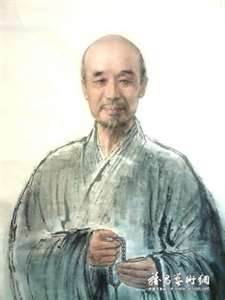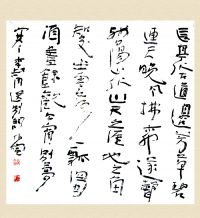Monk Hong Yi
Monk Hong Yi (弘一法师) or Li Shutong (李叔同) (Oct. 23, 1880 - Oct. 13, 1942) is the famous Chinese philosopher and artistic centipede proficient in music, calligraphy, painting and drama.
Born in Tianjin to a family rooted in Zhejiang, he was admitted to Japanese schools for overseas study during his childhood. He converted to Buddhism in 1918 after having worked as a teacher and editor when returning home. He was also among those early musicians and artists who brought western music and art to China, an incredible trial at that time when many were still molded by the feudalist Confucius.
His widely-acclaimed lyrics "Bidding Farewell" remain popular even now, 60 years after his death. They have long been considered one of the classics, combining the Chinese philosophies and rhythms with fundamental western musical elements.
The lyrics:
Outside the long corridor, along the ancient road, the green grass seemed to connect with the sky.
长亭外,古道边,芳草碧连天。
Under the gentle night breeze, swung the willows and resonated the melancholic melody from an old flute, whilst the descending sun illuminated mountains by mountain.
晚风拂柳笛声残,夕阳山外山。
At the edge of the sky and the corner of the land,
天之涯,地之角,
The friends in hearts have gone their separate ways.
知交半零落。
If only we had a bottle of coarsely distilled wine to celebrate the rare reunion;
一觚浊酒尽余欢,
Then it wouldn’t be so cold tonight.
今宵别梦寒。
Outside the long corridor, along the ancient road, the green grass seemed to connect with the sky.
长亭外,古道边,芳草碧连天。
To ask my friend, “When will you be back after we part ways this time?”
问君此去几时来,
Please don’t hesitate to drop by when you are here again.
来时莫徘徊。
The lyrics were composed as soundtracks to films like "Memories of the Southern Town" (《城南旧事》). They were also adapted by contemporary band “Tang Dynasty” (唐朝) and transformed into a pop hit.
His calligraphy, which was deemed impeccable due to its seemingly simple outlook, was much admired by several famous modern literati, including Lu Xun and Guo Moruo. He also got several students, including the later celebrated artist Feng Zikai and musician Liu Zhiping.

